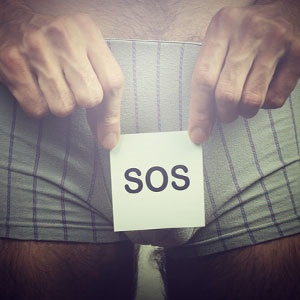
Incontinence can be caused by a number of different factors such as underlying or pre-existing illness, age and gender. The causes differ for the different types of incontinence.
Causes of urinary incontinence
Stress urinary incontinence in women
- This can be caused by:
- Hypermobility of the bladder neck (a group of muscles that connect the bladder to the urethra) and the urethra (the tube that carries urine from the bladder out of the body). This is related to the effects of childbirth.
- Urethral-sphincter (valve mechanism) dysfunction related to:
- Childbirth injury
- Trauma
- Radiation
- Previous surgery to the urethra or bladder neck
- Atrophy (wasting away) of the genital tissues, related to menopause
Stress urinary incontinence in men
- Transurethral resection of the prostate gland (a type of surgery that carries a 1% incontinence risk)
- Radical prostatectomy (where the prostate gland is removed completely; this carries a 5% incontinence risk)
- Pelvic fracture
- Trauma
Urge incontinence in men and women
Two possible causes are at play:
- Bladder muscle instability due to:
- Advanced age
- Cystitis (inflammation of the bladder)
- Radiation
- Bladder stones
- Bladder tumours
- Unknown cause (idiopathic)
- Small capacity bladder due to:
- Interstitial cystitis (“painful bladder syndrome”)
- Tuberculosis of the bladder
- Schistosomiasis (bilharzia) of the bladder
- Radiation
- Neuropathic bladder (where insufficient bladder control is related to brain, spinal cord or nerve dysfunction)
Overflow incontinence
Possible causes include:
- Obstruction of the bladder outlet (rare in women)
- Benign prostatic enlargement (hyperplasia)
- Prostate cancer (carcinoma)
- Urethral strictures (narrowing of the urethra)
- Poor bladder contraction due to damage to its nerve supply by:
- Diabetes mellitus
- Pelvic surgery
- Low spinal cord injury
- Multiple sclerosis
- Stroke
Total incontinence
Total incontinence is usually due to:
- Vesicovaginal fistula (where urine leaks into the vagina via an abnormal passage)
- Ureterovaginal fistula (where a passageway exists between the ureter and the vagina)
- Ectopic ureter (where the ureter opening occurs in an abnormal position, e.g. the vagina)
Causes of faecal incontinence
Normal bowel control relies on several factors such as the proper functioning of the pelvic muscles, the nervous system (spinal cord and brain), the lower section of the large intestine (the rectum), and the muscles surrounding the anus (sphincter muscles). If any of these areas are injured, it can cause faecal (bowel) incontinence.
Here are seven of the most common causes of faecal incontinence:
- Muscle damage
If there’s injury to the muscles at the end of the rectum (the anal sphincter), it may be more difficult to hold stool back effectively. Sphincter muscles can be damaged by constipation, haemorrhoids (piles) and childbirth, especially if labour involves an episiotomy or forceps delivery.
During an episiotomy, a surgical cut is made at the opening of the vagina. During a forceps delivery, an instrument is used to help guide the baby out of the birth canal.
- Nerve damage
If the nerves that control sphincter movement are damaged, the sphincter muscles won’t close properly. When this happens, you won’t feel the urge to go to the bathroom. Some causes of nerve damage include childbirth trauma, frequent constipation, spinal cord injury, stroke and illnesses such as multiple sclerosis and diabetes.
- Diarrhoea
Loose or watery stools associated with diarrhoea can cause or worsen faecal incontinence. Having loose stools can cause such a sudden urge to have a bowel movement that you’re unable to get to the toilet in time.
- Constipation
Chronic constipation may cause nerve damage and also lead to an accumulation of dry, solid stool in the rectum that's too bulky for normal passage (impacted stool). This may cause the intestinal and rectal muscles to stretch and eventually weaken, allowing watery stool located higher up in the digestive tract to move around the impacted stool and leak out.
Because certain illnesses such as ulcerative colitis, irritable bowel syndrome (IBS) and Crohn’s disease can also cause chronic or recurring diarrhoea, it’s important to consult your doctor if you have faecal incontinence.
- Haemorrhoids
External haemorrhoids (enlarged veins in the anus or rectum) can obstruct the sphincter in such a way that it’s unable to close completely. This causes involuntary leakage of mucus and loose stool.
- Medications
Several medications can also cause or worsen faecal incontinence. These include broad-spectrum antibiotics, beta blockers, laxatives and antidepressants (especially tricyclics and selective serotonin reuptake inhibitors).
- Pelvic floor dysfunction
During childbirth, women can sustain injuries to nerves and muscles in the pelvis, but symptoms of pelvic floor dysfunction may only occur years or even decades later.
These injuries include weakened pelvic muscles used during bowel movements, rectocele (when the rectum protrudes through the vagina because the thin muscles between the rectum and vagina become weak), and rectal prolapse (when the rectum drops down into the anus).
Read more:
Diagnosing incontinence
Reviewed by Dr Dakalo Muavha, Specialist in Obstetrics & Gynaecology, MBChB DipObs FCOG Mmed, University of Cape Town and Groote Schuur Hospital. May 2018.




 Publications
Publications
 Partners
Partners











